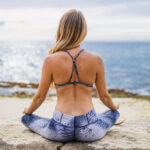Introducing Niger
About Niger
One of the world’s poorest nations, Niger might be a challenging destination to travel around, but rewards abound for those willing to persevere. And with political stability returning to this West African nation, it is slowly opening up to tourists.
A country shaped by Saharan trade routes, visitors came and went through this land for centuries, leaving behind them a wonderful fusion of Arab and African traditions.
Agadez and Zinder sprung up along these now defunct routes and today these cities retain their ancient mercantile charm. Comprised of beautiful adobe dwellings, their labyrinthine streets are home to bustling markets, which sell pottery, leather and other decorative pieces. Zinder is also renowned for its extravagant Ramadan festival, during which horsemen can be seen riding through the streets in the most flamboyant fashion.
Unlike Agadez and Zinder, Niger’s capital, Niamey, was never a site of trans-Saharan trade, and remained relatively unimportant until the 20th century. It continues to be possibly the least-hurried and most relaxed capital in the region. Situated on the lush banks of the Niger River, from which the country takes its name, Niamey is the commercial centre and a great place to delve into local life.
Niger’s biggest cultural event, however, occurs out in the desert town of Ingall. At the end of the rainy season the town’s population of 500 swells to several thousand as Tuareg and Wodaabe nomads attend the annual Cure Salk festival. The centrepiece is the Wodaabe gerewol, during which unmarried men adopt extravagant makeup and sing rhythmic chants in the hope of impressing a future bride.
Naturalists are also well catered for in Niger, which is home to a number of national parks, most famously W Regional Park, a haven for lions, leopards, elephants, baboons and much more. Ultimately, though, its Niger’s ancient dties, time-honoured festivals and nomadic culture that make this friendly country so beguiling.
Language, Culture & History
History of Niger
Human settlement in Niger goes back 6,000 years, when what was a very fertile area supported a well-developed civilization. In the thousand years up to the 19th century, power in the region was based on control of the great trans-Saharan trade routes, with the Hausa Kingdom dominating the area from the 13th century. This power decreased from the 18th century, as European traders reached West Africa by sea. Colonised in the late 19th century, Niger was part of the French Empire until independence in 1960.
Hamani Diori was elected the first head of state, and presided over a period of stability until severe drought in 1968 instigated widespread civil unrest. In April 1974, the army staged a coup under Seyni Kountche. A series of failed coups followed, but Kountche held on until his death in 1987. He was replaced by his staunch ally, AS Saibou.
Saibou’s Mouvement Nationale pour une Sodete de Developpement (MNSD) became the sole political party until the early 1990s, when Niger came under increasing pressure to reintroduce democracy. A National Assembly poll held in 1993 saw victory for the Alliance des Forces de Changement (AFC). The MNSD was also thwarted in the presidential election, which was won by Mahamane Ousmane of the AFC.
Following legislative elections in 1995, the MNSD recovered control of the national assembly under Cisse. Over the next year, friction between Cisse and Ousmane worsened until the military stepped in once again. Army chief of staff Ibrahim Bare Mainassara took control, but quickly restored a veneer of civilian government
In April 1999, Mainassara was killed by his head of security. The uncertain political situation which followed was resolved with the holding of simultaneous presidential and legislative elections. The MNSD recovered control of both presidency and national assembly, where it forms the government with Nana Amadou as premier.
The sixth republic was formed in 2009 after constitutional changes to allow then Mamadou Tandja to extent his tenure, before unrest lead to a further coup which returned the country to elections judged free and fair by the international community.
Did you lmow?
- Although Niger is sometimes called the frying pan of Africa, temperatures in the Sahara often drop below freezing at night.
- Slavery was only outlawed in 2004.
- Niger was home to the world’s most isolated tree. The next was 400km (250 miles)
Niger Culture
Religion in Niger
Approximately 95% Muslim, with Christian and animist minorities.
Social Conventions in Niger
Handshaking is customary. Casual wear is widely suitable. Women should avoid wearing revealing clothes. Traditional beliefs and Muslim customs should be respected.
Photography: Permits are required for photography and filming, and can be obtained from police stations. Tour operators and tourist bureaux are often able to make arrangements. Film is expensive and local facilities for processing film are not always good. Ask local people for permission before taking their photographs. Military installations, airports and administrative buildings (including the Presidential Palace) should not be photographed.
Language in Niger
The official languages are French and Arabic. Also spoken are Hausa (by half of the population), Djerma, Fulani, Manga, Zarma and Tuareg dialects.
Geography & weather
Weather and climate
Best time to visit
Summers are extremely hot. The dry season is from October to May. Hoary rains with high temperatures are common in July and August.
Required clothing
Lightweight cottons and linens are required most of the year. Warmer clothes during the cool evenings, especially in the north, are
Essential. Rainwear is advisable.
Geography
Niger has borders with Libya and Algeria to the north, Chad to the east, Nigeria and Benin to the south, and Mali and Burkina Faso to the west The capital, Niamey, stands on the north bank of the Niger River and has long been a major trading centre on this important navigable waterway. The river meanders for 500km (300 miles) through the southwestern corner of the country.
To the east is a band of semi-arid bush country along the border with Nigeria, shrinking by 20km (12 miles) every year as over-grazing claims more land for the Tenere Desert which already occupies over half of Niger. This desert is divided by a range of low mountains, Air ou Azbine, in the eastern foothills of which lies the city of Agadez. Surrounded by green valleys and hot springs amid semi-desert, this regional capital is still a major terminus for Saharan caravans. The desert to the west of the mountains is a stony plain hosting seasonal pastures; to the north and west are mostly vast expanses of sand. There is arable land beside Lake Chad in the extreme southeastern corner of the country.
The Hausa people live along the border with Nigeria and most are farmers. The
Songhai and Djerma people live in the Niger valley and exist by farming and fishing. The nomadic Fulani have spread all over the Sahel. The robed and veiled Tuaregs once dominated the southern doles; the few who remain are camel herders and caravanners on the Saharan routes. The Manga (or Kanun) live near Lake Chad and are well known for their colourful ceremonies in which pipes and drums accompany slow, stately dancing.
Business Opportunity
Doing Business in Niger
A lightweight suit and tie are generally acceptable. A knowledge of French is essential, as interpreters are not readily available and executives seldom speak English.
Office Hours
Mon-Fri 0800-1230 and 1500-1830, Sat 0800-1230.
Economy
Niger is one of the world’s poorest countries. Around 90% of the population is employed in agriculture, although less than 5% of the land is cultivated. This situation is exacerbated by the ever-expanding Saharan desert, drought and locust plagues.
Less than one-tenth of the crops grown are cash crops, the rest being for domestic consumption. The nomadic population rears livestock. Niger’s most valuable commodity is uranium. Gypsum, coal and tin ore are also extracted and oil deposits may exist.
In 2005, the IMF approved 100% relief of Niger’s US$86 million debt burden. Inflation was at 7.8% in 2005, and annual growth at 3.5% in 2006.
Membership of the CFA Franc Zone affords some monetary stability. Niger is a member of West African trading bloc, ECOWAS.
GDP
U583.6 million 12006 estimate).
Main exports
Uranium, livestock, cowpeas and onions.
Main imports
Foodstuffs, machinery, vehicles, petroleum and consumer goods.
Main trading partners
France, Nigeria, Russia, USA and China.
Keeping in Touch in Niger
Mobile Phone
Roaming agreements exist with some international mobile phone companies. Coverage is limited to urban areas.
Internet
Internet access can be found in major urban areas.
Media
The state controls the main IV and radio stations, but private radio stations are on the increase. Low literacy levels mean radio is the most important news outlet
Post
Airmail to Western Europe takes up to two weeks.
Post Office hours
Generally 0730-1230 and 1530-1800.
Plan your trip
Niger’s Travelling
Flying to Niger
Airlines flying to Niger include An France, Ethiopian Airlines, Royal Air Maroc and Turkish Airlines. There are no direct flights from UK the or the USA
Airport Guides
Niamey Diori Hamani International Airport
Code NIM
Location
The airport is 12km (7.5 miles) southeast of the Aty. Telephone Address
Flight times
From London – 8 hours 30 minutes (including stopover); New York – 15 hours 30 minutes (including stopover).
Departure tax
None.
Travelling to Niger by Rail
Construction is underway on a railway connecting Niamey with the port of Cotonou in Benin.
Driving to Niger
Getting to Niger by boat
Staying there
Hotels
Hotel accommodation is difficult to obtain and reservations for major international hotels should be booked prior to arrival. All reservations should be made well in advance. There are good hotels in Agadez, Ayorou, Maradi, Niamey, to Tapoa and Zinder. There are also ‘encampments’ in Agadez, Bonbon, Namaro and Tillaberi. Local hotels are available on a first-come, first-served basis. For further information, contact the National Tourist Office (see Contact Addresses).
Camping
Other accommodation
While you’re there
Things to see & do their
Attractions in Niger
Buy a camel at Ayorou market
Trawl the animal market in Ayourou, an ancient trading station located on an island in the Niger River, close to the Malian border. While in the region, use the town of Tillaberi as a jumping off point for reaching W National Park, where you should keep your eyes peeled for the endangered We. African giraffe, which clings on in the park.
Catch a tribal festival
Celebrate the end of the rainy season with the Peulh people, who mark the change in weather with a lively knees up. Alternatively, witness the Cure Soirée at Ingall, when nomads gather their cattle to go to new pastures. Not to be missed is the Wodaabe tribe’sgerewol, an annual courtship festival, the largest of which takes place at Ingall.
Discover Niger’s desert landscapes
Arrange an expedition through the mountains to relax at the springs at lgouloulef and Tafadek or the oasis town of Iferouane. Beyond, the Tenere Desert offers a charismatic landscape of dunes and open plains, while the Djado Plateau is rich in prehistoric rock painting and engraving.
Experience Zinder’s labyrinthine alleyways
The Old Town in Zinder, which was the capital of Niger until 1927, is a compact maze of alleyways, typical of a Hausa settlement. Near the centre is the adobe Sultan’s Palace, while the central market impresses with its sheer size alone. Artefacts in the small museum help to explain the history of the town.
Explore the Air Mountains
Within the Sahara Desert, the rugged Air Mountains rise steeply out of the desolate landscape to more than 1,800m (6,0000), and extend over some 85,000 sq km (32,000 sq miles). A region traditionally roamed by Tuareg nomads, it is home to a surprising array of wildlife, including hyena, baboon and desert specialists such as the fennec.
Go souvenir shopping in Maradi
Niger’s third largest city, Maradi is one of the country’s economic hubs. As a centre for Hausa culture, Maradi hosts an artisan market for handicraft purchases in the Solitan quarter, as well as the historically important Katsinawa Provincial Chiefs Palace and Dan Kasswa mosque which are well worth visiting.
Kick back in the capital, Niamey
Niamey is the country’s sprawling capital, situated on the east bank of the Niger River. The Small and Grand Markets are worth a visit, as is the Great Mosque, the National Museum (including botanical gardens and a zoo) and the Hippodrome, where home and camel races often take place.
Observe wildlife in W National Park
Named so because of the W-shaped meander in the River Niger, W National Park is the country’s most important conservation area. Spanning 10,000 sq km (4,000 sq miles) across three countries, its abundant wildlife including buffalos, elephants, lions, hyenas, jackals, baboons and giraffe. The birdlife is also prolific, with over 350 species
Identified.
Pay your respects to the King of Dosso
Royalists may want to swing by Dosso, seat of the Dosso Kingdom, which came to dominate the region before colonialism and continues to perform a ceremonial role. The city in southwest Niger is home to an exceptional palace, museum, and lively town square. Many festivals with parades and official ceremonies are celebrated here.
Sail the Niger River
Take a canoe for a sunset sail along the Niger River, one of Africa’s most important waterways and Niger’s lifeblood. Fishing for some of the 250 species in the river is possible throughout the year, the main season being from February to July.
Visit the ancient trading city of Agadez
Climbing the pyramidal minaret of the mud-brick Grand Mosque at sunset provides spectacular views of Agadez, the old Tuareg capital and a UNESCO World Heritage Site. Still a caravan trading city, it has a thriving camel market, but also a lively handicraft trade. Beautiful silver and leatherwork can be bought all around the dry.
Tourist offices
Office National du Tourisme (National Tourist Office)
Address: BP 612, Avenue du President H Luebke, Niamey, Telephone: 732 447.
Nightlife & Shopping
Shopping in Niger
Markets in the main towns, notably Niamey and Agadez, sell a range of local artefacts. The Centre des Metiers d’Art de Niger, close to the National Museum, is worth visiting, as a wide range of local goods can be bought there. Courteous bargaining is expected and items include multicoloured blankets, leather goods, engraved calabashes, silver jewellery, swords and knives.
Shopping hours
Mon-Fri 0800-1230 and 1500-1830, Sat 0800-1200.
Meals & Beverages
Although Niger has concentrated on improving its agricultural output, shortages of locally produced foodstuffs are common, owing to drought Traditional dishes tend to be less varied than in countries further south and are usually based around millet, rice or niebe, a type of bean that has become an important crop. Meals therefore centre on this plain yet filling staple, with flavour added by means of a vegetable or meat sauce.
Spices such as saffron, nutmeg and cinnamon have been introduced into the cuisine after centuries of trade with Arab North Africa, while dishes with a French twist are also common due to France’s 19th century colonisation.
Specialties
Shinkafa: Dense balls of pounded rice served with meat and vegetable stews. Tattabara: Flame-grilled flattened whole pigeon.
Deguidegui: Tomato stew often served with a mix of spaghetti and macaroni known as maka.
Brochettes: Chunks of beef or mutton placed on a skewer and cooked over an open fire. Most commonly found in Hausa country and the nomadic regions of the north. Laban: A branded frozen yogurt drink especially popular in the hotter months. Dodo: Deep-fried slices of plantain.
Palm nut soup: A typical West African dish is ever there was one.
Salaat: Often beginning a meal, colourful salads are made from seasonal vegetables such as lettuce and tomatoes.
Fours: Small balls of ground and slightly fermented millet crushed with milk, sugar and spices.
Ogbano: Also called the bush mango, the tree produces flavour-filled fruit and nuts. Tea: Ubiquitous drink in Niger, it quenches the thirst of millions of residents daily.
Things to know
Alcohol is available, but there are restrictions because of Muslim beliefs and traditions.
Tipping
Expected for most services, usually 10%. Most hotels add a 10 to 15% service charge.
Drinking age
18
Currently Unavailable
Before you go
Visa & Passport
| Passport required | Return ticket required | Visa Required | |
| Other EU | Yes | Yes | Yes |
| USA | Yes | Yes | Yes |
| Canadian | Yes | Yes | Yes |
| Australian | Yes | Yes | Yes |
| British | Yes | Yes | Yes |
Passports
To enter Niger, a passport valid for sic months is required by all nationals referred to in the chart above.
A yellow fever certificate is also required.
Visas
Visas for Niger are required by all nationals referred to in the chart above.
Visa Note
You must show a copy of your return ticket and accommodation booking when applying for a vi..
Business travellers require a letter of invitation from a company in Niger.
Types and Cost
Single-entry visa: €75; multiple-entry visa: €100.
Validity
Three months.
Transit
Travellers leaving Niger within 24 hours who remain in the airport do not require a vi..
Application to
Nearest consulate (or consular section at embassy). UK nationals should apply to the honorary consulate or the embassy in Paris.
Working days
Allow up to five days for visa processing.
Slovenian Citizenship
Our visa and passport information is updated regularly and is correct at the time of publishing
We strongly recommend that you verify critical information unique to your trip with the relevant embassy before travel.
Embassies and tourist offices
Embassy of the Republic of Niger in the USA
Telephone: (202)483 4224.
Website: http://www.embassyofniger.org Address:, 2204 R Street NW, Washington, DC 20008, Opening times:
Honorary Consulate of the Republic of Niger in the United Kingdom
Telephone: (020) 7328 8180.
Website: http://www.nigerconsulateuk.org
Address: Maida Vale, MPC House, 15 Maple Mews, London, NW6 5UZ, Opening times:
Mon-Fri 1000-1200.
Healthcare
Health Care
The two main hospitals are in Niamey and Zinder. Only the main centres have reasonable medical facilities, but even these are poor. Personal medicines should be brought in as these can be difficult or impossible to obtain in Niger. Full health insurance is essential and should include cover for emergency repatriation.
Food and Drink
All water should be regarded as being potentially contaminated. Water used for drinking, brushing teeth or making ice should have first been boiled or otherwise sterilised. Milk is unpasteurised and should be boiled. Powdered or tinned milk is available and is advised. Avoid dairy products which are likely to have been made from unboiled milk. Only eat well cocked meat and fish, preferably served hot. Vegetables should be cooked and fruit peeled.
Other Risks
Vaccinations against tuberculosis, cholera and hepatitis B are sometimes recommended. Avoid swimming and paddling in fresh water.
Holidays
Below are listed Public Holidays in Niger
New Year’s Day
01 January 2020
Easter Monday
13 April 2020
Concord Day
24 April 2020
Labour Day
01 May 2020
Eid al-Fitr (End of Ramadan)
24 May 2020
Tabaski (Feast of Sacrifice)
31 July 2020 to 01 August 2020
Independence Day
03 August 2020
Milad un Nabi (Birth of the Prophet Muhammad)
29 October 2020
Note: Celebrated 5 days later for Shia.
Republic Day
18 December 2020
Christmas Day
25 December 2020
Duty free & Currency
Currency and Money
Currency information
CFA (Communaute FinanciereAfricaine)Franc (XOF; symbol CFA) = 100 centimes. Notes are in denominations of CFA10,000, 5,000, 2,500, 2,000 and 1,000. Coins are in denominations of CFA500, 250, 200, 100, 50, 25, 10, 5 and 1. Niger is part of the French Monetary Area.
Only currency issued by the Banque des Etats de l’Afrique de (‘Quest (Bank of West African States) is valid; currency issued by the Banque des Etats de l’Afrique Centrale (Bank of Central African States) is not The CFA Franc is tied to the Euro.
Credit cards
Niger has a cash-based society with no ATMs. Diners Club and MasterCard are accepted on a very limited basis.
ATM
Niger has a cash-based society with no ATMs.
Travellers cheques
Accepted by banks, as well as some hotels, restaurants, shops and airline offices. To avoid additional exchange rate charges, travellers are advised to take travellers cheques in Euros.
Banking hours
Mon-Fri 0730-1100 and 1530-1730.
Currency restrictions
The import of local and foreign currency is unrestricted. Export of local currency is limited to X0F25,000. The export of foreign currency is unlimited.
Currency exchange
Currency can be exchanged at the airport as well as at main banks and hotels.
Niger duty free
Overview
The following items may be imported into Niger without incurring customs duty:
- 200 cigarettes or 100 cigarillos or 25 cigars or 250g of tobacco.
- 1 bottle of spirits and 1 bottle of wine.
- 500m1 of eau de toilette and 250m1 of perfume.
Banned Imports
Pornography is prohibited. You must obtain a licence to import sporting guns.
Banned Exports
Digging up or attempting to export ancient artefacts is prohibited.










